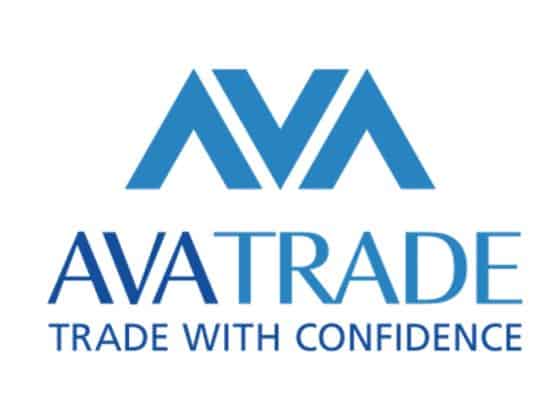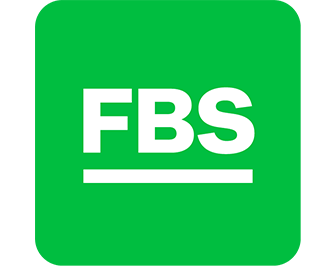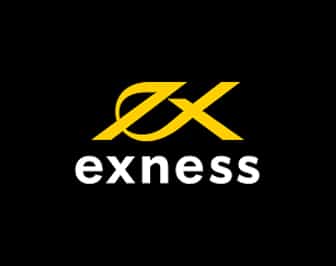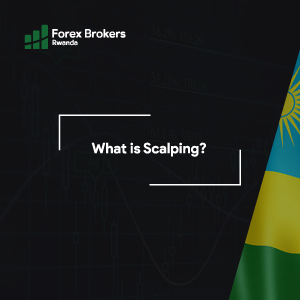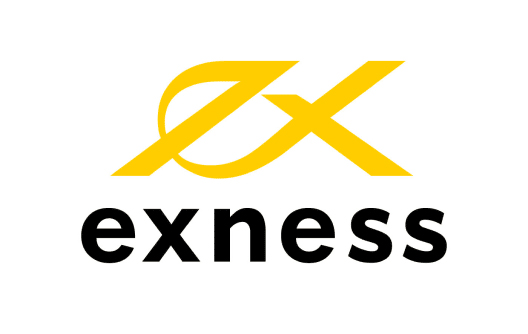
What is Scalping in Rwanda?
What is Scalping in Rwanda revealed? We tested and verified scalping in forex trading for Rwandan traders.
This is a complete guide to scalping in Rwanda.
In this in-depth guide you’ll learn:
- What is scalping?
- What is a scalping strategy in Rwanda?
- Our recommended forex brokers with whom you can trade when scalping?
- How to compare forex trading brokers against each other?
- What is the best time to scalp in Rwanda?
- What are forex scalping indicators?
- Which scalping strategies can you use with MetaTrader 4/MT4?
- What is a profitable scalping strategy?
- Why you should trade with a scalping strategy?
- Which forex brokers offer a low minimum deposit of $5 (2 092 RWF)?
- Which brokers offer a signup bonus for first-time traders?
And lots more…
So if you’re ready to go “all in” with scalping for Rwandans…
Let’s dive right in…
10 Best Forex Brokers in Rwanda for 2024
Rank
Broker
Review
Regulators
Min Deposit
Official Site
- Louis Schoeman
What is Scalping in Rwanda? (Updated 2024)
What is Scalping?
Scalping is a trading strategy employed in various financial markets, including forex, stocks, and commodities. It involves making multiple trades within a short period to profit from small price movements. Scalpers aim to take advantage of brief price fluctuations and generate quick profits.
Scalping is characterized by its focus on short-term trades, often held for seconds to minutes. Scalpers utilize technical analysis tools and charts with small timeframes, such as one-minute or five-minute charts, to identify potential entry and exit points. They look for rapid price movements, aiming to capture small increments of profit.
The primary goal of scalping is to accumulate numerous small gains that can add up to significant profits over time. Scalpers rely on high trading volume and frequent trades to achieve their objectives. They often utilize leverage to amplify their position sizes and maximize potential returns.
Understanding Scalping

It involves making quick trades to profit from small price movements. The goal of scalping is to accumulate multiple small profits over time by taking advantage of short-term price fluctuations.
Scalpers focus on short timeframes, often using one-minute or five-minute charts, to identify opportunities for quick trades. They rely on technical analysis tools, such as chart patterns, indicators, and price action, to make rapid decisions.
Scalpers aim to capture small increments of profit by executing a large number of trades. They rely on the principle that these small gains will accumulate and generate overall profitability.
Successful scalping requires specific skills and attributes. Scalpers need to have a good understanding of technical analysis and be able to interpret charts and indicators quickly. They should have excellent discipline and be able to control their emotions, as scalping can be fast-paced and mentally demanding.
Scalping Objectives

The main objectives of scalping as a trading strategy are as follows:
Profit from Small Price Movements:
The primary goal of scalping is to capitalize on small price fluctuations within the market. Scalpers aim to generate quick profits by taking advantage of these short-term price movements.
Accumulate Multiple Small Profits:
Scalpers seek to accumulate numerous small profits over time. By executing a large number of trades, they aim to capitalize on the cumulative effect of these small gains, leading to overall profitability.
Mitigate Exposure to Market Risk:
Scalping involves holding positions for a very short duration, which helps limit exposure to market risk. Scalpers aim to enter and exit trades swiftly, reducing the time during which they are exposed to potential adverse price movements.
Take Advantage of High Trading Volume:
Scalpers often focus on highly liquid markets or specific trading sessions where trading volume is high. This provides them with more trading opportunities and increases the likelihood of finding favorable price movements.
Manage Risk and Maintain Discipline:
Scalpers employ strict risk management techniques to control their exposure and protect their capital. This includes setting stop-loss orders, defining profit targets, and closely monitoring trades to limit potential losses.
Trading Tools for Scalpers in Rwanda

Scalpers in Rwanda can utilize various trading tools to enhance their scalping strategy. Here are some trading tools commonly used by scalpers:
Level II Quotes:
Level II quotes provide detailed information about bid and ask prices, as well as the number of shares or lots available at each price level. This tool helps scalpers gauge market depth and liquidity, allowing them to make more informed trading decisions.
Time and Sales:
Time and Sales, also known as the tape, display real-time trade data, including the price, volume, and time of each transaction. Scalpers can use this tool to analyze the pace of trading and identify potential trends or price movements.
One-Click Trading:
One-click trading platforms enable scalpers to execute trades with a single click, eliminating the need for confirmation prompts. This feature helps ensure fast and efficient order placement, crucial for scalpers aiming to capitalize on short-term price movements.
Advanced Charting Software:
Scalpers rely heavily on technical analysis, and having access to advanced charting software is essential. These tools offer various chart types, technical indicators, and drawing tools to analyze price patterns, trends, and support and resistance levels.
Hotkeys:
Hotkeys allow scalpers to assign specific commands or actions to keyboard shortcuts. This feature helps expedite order placement, position management, and navigating between different trading screens, improving execution speed and efficiency.
News Feed:
Access to real-time news feeds and economic calendars is crucial for scalpers to stay updated on market-moving events and economic data releases. Being aware of such news can help scalpers anticipate potential volatility and adjust their trading strategies accordingly.
Volatility Indicators:
Volatility indicators, such as average true range (ATR) or Bollinger Bands, can assist scalpers in identifying periods of increased price volatility. These indicators help determine suitable entry and exit points based on the expected price range.
Algorithmic Trading Tools:
Some scalpers may choose to use algorithmic trading tools or automated trading systems that execute trades based on predefined criteria or algorithms. These tools can help scalpers take advantage of high-speed order execution and make quick trading decisions.
It’s important for scalpers in Rwanda to select trading platforms and brokers that offer these tools and cater to their specific scalping needs. Additionally, proper risk management and a disciplined approach to trading remain crucial for scalpers to navigate the fast-paced nature of scalping effectively.
Scalping versus Swing Trading

Scalping and swing trading are two distinct trading strategies with different time horizons and approaches. Here’s a comparison of scalping and swing trading:
Time Horizon:
Scalping: Scalping is a short-term trading strategy where traders aim to hold positions for very brief periods, typically seconds to minutes. Scalpers focus on capturing small price movements and executing multiple trades throughout the day.
Swing Trading:
Swing trading involves holding positions for a few days to several weeks. Swing traders aim to capture larger price movements within the overall trend of a financial instrument.
Trading Frequency:
Scalping: Scalpers execute a high volume of trades, taking advantage of small price fluctuations. They may execute dozens or even hundreds of trades within a single trading session.
Swing Trading: Swing traders typically execute fewer trades compared to scalpers. They focus on identifying and capturing significant price movements within the broader trend, which may result in holding positions for longer durations.
Profit Targets and Risk:
Scalping: Scalpers aim for small, quick profits from each trade. They rely on frequent trading opportunities and utilize tight profit targets and stop-loss orders to manage risk.
Swing Trading: Swing traders aim to capture larger price movements and, therefore, may have higher profit targets. They often use wider profit targets and stop-loss orders to allow for greater price fluctuations within the overall trend.
Time and Effort:
Scalping: Scalping requires constant monitoring of the market and quick decision-making. Scalpers need to stay focused and actively manage their positions throughout the trading session.
Swing Trading: Swing trading requires less time and effort compared to scalping. Traders can analyze the market, identify potential opportunities, and place trades accordingly. Swing traders have more flexibility in managing their positions and can engage in other activities while their trades develop.
Risk Management:
Scalping: Scalpers aim to minimize risk by using tight stop-loss orders to limit potential losses. They rely on strict risk management rules to protect their capital.
Swing Trading: Swing traders also employ risk management techniques but may allow for more significant price fluctuations within the overall trend. They utilize wider stop-loss orders to account for short-term market volatility.
Both scalping and swing trading have their own advantages and challenges. Scalping requires a high level of focus, discipline, and the ability to make quick decisions, while swing trading allows for a more relaxed trading approach with the potential for capturing larger price movements. Traders should choose the strategy that aligns with their trading style, time availability, and risk tolerance.
Scalping and Momentum Trading Strategies Compared

Scalping and momentum trading is popular trading strategies that differ in their approach and time horizon. Here’s a comparison between scalping and momentum trading:
Time Horizon:
Scalping: Scalping is a short-term trading strategy where traders aim to hold positions for very brief periods, typically seconds to minutes. Scalpers focus on capturing small price movements within a short time frame.
Momentum Trading:
Momentum trading is a medium-term trading strategy where traders aim to hold positions for a few hours to several days. Momentum traders seek to capture larger price movements driven by significant market trends.
Trading Frequency:
Scalping: Scalpers execute a high volume of trades throughout the trading day, aiming to capitalize on multiple small price movements. They may execute dozens or even hundreds of trades in a single session.
Momentum Trading: Momentum traders may execute fewer trades compared to scalpers as they focus on identifying and capitalizing on strong price trends. They typically wait for high-probability setups with favorable risk-to-reward ratios.
Entry and Exit Strategies:
Scalping: Scalpers enter and exit trades quickly, often based on short-term technical signals or price patterns. They aim to take quick profits and frequently use tight stop-loss orders to manage risk.
Momentum Trading: Momentum traders seek to enter trades during significant price breakouts or when a strong trend is confirmed. They rely on technical indicators, such as moving averages or trendlines, to identify favorable entry points. Exit strategies may involve trailing stop-loss orders or profit targets based on the duration and strength of the price trend.
Profit Targets and Risk:
Scalping: Scalpers target small profits on each trade, aiming for quick and frequent gains. They focus on maintaining a high win rate while managing risk through strict stop-loss orders.
Momentum Trading: Momentum traders aim for larger profits by riding the price trend over a longer time frame. They may have larger profit targets but also employ wider stop-loss orders to allow for potential market fluctuations.
Time and Effort:
Scalping: Scalping requires constant attention and quick decision-making. Scalpers need to monitor the market closely and act swiftly on short-term price movements.
Momentum Trading:
Momentum trading involves less intense monitoring as traders focus on capturing larger price movements driven by significant trends. Traders can analyze the market at specific intervals and make trading decisions accordingly.
Both scalping and momentum trading have their own advantages and challenges. Scalping offers the potential for quick profits but requires intense focus and discipline. Momentum trading allows for capturing larger trends but may require more patience and the ability to ride out market fluctuations. Traders should consider their trading style, time availability, and risk tolerance when choosing between these strategies.
Best Technical Indicators for Scalping Forex in Rwanda

When it comes to scalping in forex trading, there are several technical indicators that can be useful in identifying short-term trading opportunities. Here are some popular indicators that can be considered for scalping in Rwanda:
Moving Averages:
Moving averages, such as the 5-period and 10-period exponential moving averages (EMA), can help identify short-term trends and potential entry and exit points.
Bollinger Bands:
Bollinger Bands consist of a middle band (usually a 20-period moving average) and two outer bands that represent standard deviations from the middle band. Scalpers can look for price volatility and potential reversals when the price touches the outer bands.
Relative Strength Index (RSI):
The RSI is a momentum oscillator that measures the speed and change of price movements. Scalpers can use the RSI to identify overbought and oversold conditions, indicating potential reversals.
Stochastic Oscillator:
The stochastic oscillator is another momentum oscillator that compares a security’s closing price to its price range over a specified period. Scalpers can use it to identify overbought and oversold levels and potential reversals.
Fibonacci Retracement:
Fibonacci retracement levels are horizontal lines that indicate potential support and resistance levels based on key Fibonacci ratios. Scalpers can use these levels to identify price retracements and potential bounce or breakout points.
Volume Indicators:
Volume indicators, such as the volume-weighted average price (VWAP) or on-balance volume (OBV), can provide insights into the strength of buying and selling pressure. Scalpers can use volume indicators to confirm price movements and identify potential reversals.
Remember, scalping requires quick decision-making and precise execution. It is essential to combine technical indicators with proper risk management techniques, such as setting tight stop-loss orders and taking quick profits. Additionally, it is recommended to practice scalping on a demo account before applying it with real money to gain experience and refine your strategy.
Tips for Rwandan Scalpers who trade Forex in Rwanda

If you are a Rwandan scalper trading forex, here are some tips to help you navigate the market more effectively:
Use Tight Stop-Loss Orders:
Implement tight stop-loss orders to manage risk effectively. Since scalping involves quick trades, it’s important to protect yourself from significant losses in case the market moves against your position.
Take Quick Profits:
Scalping aims for small, quick profits, so it’s important to have a predefined profit target for each trade. Once the market reaches your target, close the position and move on to the next opportunity.
Utilize Short Timeframes:
Scalpers often operate on short timeframes, such as 1-minute or 5-minute charts, to identify rapid price movements. Use these timeframes to spot entry and exit points based on your trading strategy.
Be Mindful of Market Volatility:
Keep an eye on market volatility as it can impact price movements and execution speed. Avoid trading during major news releases or when market liquidity is low, as it can increase the risk of slippage or widened spreads.
Practice Discipline and Patience:
Scalping requires discipline and the ability to stick to your trading plan. Avoid impulsive trades or overtrading. Wait for the right setups and be patient in executing your strategy.
Monitor Economic Calendar:
Stay updated with economic news and events that can impact the currency markets. Economic indicators and news releases can lead to increased volatility, offering scalping opportunities.
Remember that scalping can be challenging and requires a high level of focus and concentration. It is essential to manage your risk effectively, maintain discipline, and continually educate yourself to improve your scalping skills over time.
Best Forex Pair for Scalping in Rwanda
When it comes to choosing the best forex pair for scalping in Rwanda, it’s important to consider currency pairs that offer high liquidity and tight spreads. Here are a few forex pairs that are commonly favored by scalpers:
EUR/USD (Euro/US Dollar):
This pair is one of the most popular choices for scalping due to its high liquidity and tight spreads. The EUR/USD often exhibits rapid price movements, presenting scalping opportunities.
GBP/USD (British Pound/US Dollar):
GBP/USD is another widely traded pair with good liquidity. It can offer quick price fluctuations, making it suitable for scalping strategies.
AUD/USD (Australian Dollar/US Dollar):
The AUD/USD is known for its liquidity and can provide scalping opportunities, particularly during the Asian trading session when there may be increased volatility.
Before implementing any scalping strategy, it’s crucial to thoroughly analyze and understand the specific characteristics of the chosen currency pair and stay updated with market news and events that may impact its price movements.
Best Time to Scalp Forex
The best time to scalp forex in Rwanda depends on the currency pairs you are trading and the market’s liquidity and volatility during specific trading sessions. Here are some key considerations for determining the optimal time for forex scalping:
Overlapping Trading Sessions:
The overlap between major trading sessions can offer increased liquidity and volatility, creating favorable conditions for scalping. The most significant overlap occurs between the European and North American sessions, typically from 13:00 to 17:00 GMT.
Economic News Releases:
Economic news releases can significantly impact currency prices and create volatile market conditions. Some scalpers prefer to avoid trading during news releases due to the increased uncertainty and potential for rapid price movements. However, experienced scalpers who have developed specific strategies for trading news events may choose to capitalize on the increased volatility.
Currency Pair Characteristics:
Different currency pairs have varying levels of liquidity and volatility during different times of the day. It’s essential to understand the specific characteristics of the currency pairs you trade. For example, pairs involving the USD, EUR, GBP, and JPY are generally more active during their respective market sessions.
Personal Preference and Availability:
The best time for scalping also depends on your personal preference and availability. Scalping requires active monitoring and quick decision-making, so choose a time when you can focus on the market without distractions.
It’s important to remember that market conditions can change, and there are no guarantees of profitability in forex scalping. It’s recommended to practice scalping strategies on a demo account and gradually transition to real trading as you gain experience and confidence. Additionally, staying informed about market news and events and adapting your strategy to changing market conditions are key factors for successful forex scalping.
How to start Scalping in Forex Step by Step
Choose a Reliable Broker:
Select a reputable Forex broker that offers competitive spreads, reliable trade execution, and a user-friendly platform suitable for scalping. Ensure the broker is regulated and has a good reputation.
Define Your Trading Strategy:
Develop a scalping strategy that aligns with your risk tolerance and trading preferences. Consider factors such as timeframes, currency pairs, entry and exit criteria, and risk management techniques. Keep your strategy simple and focused on capturing quick price movements.
Practice on a Demo Account:
Before trading with real money, practice your scalping strategy on a demo account provided by your broker. This allows you to gain experience, test different approaches, and become comfortable with executing trades.
Set Up Trading Tools:
Identify and set up technical indicators and tools that align with your scalping strategy. Popular indicators for scalping include moving averages, oscillators (e.g., RSI, Stochastic), and Bollinger Bands. Customize your charting platform to display these indicators effectively.
Monitor Market Conditions:
Stay updated with economic news, events, and market developments that may impact currency prices. Focus on high-impact news releases and be aware of market sessions and their corresponding liquidity and volatility levels.
Choose Suitable Currency Pairs:
Select currency pairs that are suitable for scalping, considering their liquidity and volatility. Major currency pairs like EUR/USD, GBP/USD, and USD/JPY are often preferred by scalpers due to their higher trading volumes and tighter spreads.
Set Clear Entry and Exit Points:
Define precise entry and exit points for your trades based on your scalping strategy. This may involve using technical indicators, support and resistance levels, or price patterns. Be disciplined and execute trades swiftly when the criteria are met.
Manage Risk:
Implement proper risk management techniques to protect your capital. Set stop-loss orders to limit potential losses and use appropriate position sizing to ensure you don’t risk too much on individual trades.
Start Trading with Real Money:
Once you are consistently profitable on a demo account and feel confident in your scalping strategy, transition to trading with real money. Start with a small trading account size and gradually increase your position sizes as you gain experience and achieve consistent results.
Evaluate and Adjust:
Continuously evaluate your scalping performance and make adjustments to your strategy as needed. Keep a trading journal to track your trades and identify areas for improvement.
How to Choose the Right Scalping Forex Broker in Rwandan
When choosing the right scalping Forex broker in Rwanda, consider the following factors:
Regulation and Security:
Ensure the broker is regulated by a recognized financial authority. The regulation provides a level of protection for your funds and ensures the broker follows proper business practices.
Tight Spreads and Low Commissions:
Scalping relies on capturing small price movements, so look for a broker that offers competitive spreads and low commissions. This reduces trading costs and improves your profitability.
Fast Execution Speed:
Scalpers need a broker with fast order execution to enter and exit trades quickly. Look for a broker that provides low latency and minimal slippage, ensuring your orders are executed promptly.
Scalping-friendly Trading Platform:
Choose a broker that offers a trading platform suitable for scalping. The platform should provide real-time price quotes, advanced charting tools, and customizable settings to accommodate your scalping strategy.
Availability of Scalping Accounts:
Some brokers offer specific account types designed for scalpers, such as zero-spread or ECN (Electronic Communication Network) accounts. These accounts provide better trading conditions for scalping.
Support for Multiple Currency Pairs:
Ensure the broker offers a wide range of currency pairs to trade, including major pairs and other pairs you plan to scalp. This allows you to diversify your trading opportunities.
Technology and Infrastructure:
Consider the broker’s technological infrastructure, including their servers and connectivity. A stable and reliable trading environment is essential for scalping, as any interruptions or delays can negatively impact your trading performance.
Customer Support:
Look for a broker with responsive and efficient customer support. You may need assistance with technical issues, account management, or trading inquiries, so it’s important to choose a broker that provides reliable support services.
Education and Resources:
Consider if the broker provides educational resources, webinars, or trading tools that can help improve your scalping skills and knowledge. Access to market analysis and research can also be beneficial for your trading decisions.
Reputation and Reviews:
Research the broker’s reputation by reading reviews and feedback from other traders. Look for any red flags or consistent complaints that may indicate potential issues.
Remember to compare multiple brokers and evaluate them based on your specific scalping requirements. Each trader’s needs may vary, so it’s essential to choose a broker that aligns with your trading style and preferences.
The Best Scalping Brokers in Rwanda
In this article, we have listed the best brokers that accommodate scalping strategies in Rwanda. We have further identified the scalping brokers that offer additional services and solutions to Rwandan traders.
Best MetaTrader 4 / MT4 Scalping Broker in Rwanda
Min Deposit
USD 300 / 321 847 RWP
Regulators
FCA
Trading Desk
MetaTrader 4, Trading Station
Crypto
Yes
Total Pairs
7
Islamic Account
Yes
Trading Fees
Low
Account Activation Time
24 Hours
Overall, FXCM is the best MT4 Scalping broker in Rwanda. FXCM has been in operation since 1999 and is one of the best MT4 NextGen Brokers with AutoChartist and PsyQuation. FXCM offers zero-commission trading which reduces the trading costs that scalpers face.
Best MetaTrader 5 / MT5 Scalping Broker in Rwanda
Min Deposit
USD 5
Regulators
CySEC, FSC, CFTC
Trading Desk
MetaTrader 4 and MetaTrader 5
Crypto
No
Total Pairs
47
Islamic Account
Yes
Trading Fees
Low
Account Activation Time
24 Hours
Overall, HF Markets is the best MetaTrader 5 Scalping broker in Rwanda. HF Markets has a strong global presence and is partnered with several reputable liquidity providers to offer the best pricing to scalpers.
HF Markets offers scalpers a choice between tailormade trading accounts for their needs and objectives.
Best Scalping Broker for beginners in Rwanda
Min Deposit
USD 50
Regulators
CySec, FCA
Trading Desk
None
Crypto
Yes
Total Pairs
47
Islamic Account
Yes
Trading Fees
Low
Account Activation Time
24 Hours
* Etoro has lowered the amount of the minimum FTD to $ 50 for the following countries: Germany, Austria, Netherlands, Norway, UK, Ireland, Spain, Italy, Sweden, Switzerland.
Overall, eToro is the best Scalping broker for beginners in Rwanda. eToro is the perfect platform where beginner scalpers can start practicing their trading strategies.
eToro provides an ideal social trading experience that makes it easy for Rwandans to master scalping by following more seasoned traders.
Best Low Minimum Deposit Scalping Broker in Rwanda
Min Deposit
USD 10
Regulators
CySec, FSCA
Trading Desk
MetaTrader 4 and MetaTrader 5
Crypto
Yes
Total Pairs
–
Islamic Account
No
Trading Fees
Low
Account Activation Time
24 Hours
Overall, FXTM is the best Low Minimum Deposit Scalping Broker in Rwanda. FXTM makes it easy for scalpers to register an account and start scalping the forex market.
FXTM is known for its low commission charges and zero-pip spreads. FXTM is the ideal broker for fast-paced forex scalping in Rwanda.
Best Scalping ECN Broker in Rwanda
Overall, FP Markets is the best Scalping ECN broker in Rwanda. FP Markets offers Rwandans a broad selection of financial instruments that they can scalp. FP Markets also offers commission-free trading and high leverage ratios up to 1:500.
Best Islamic / Swap-Free Scalping Broker in Rwanda
Min Deposit
USD 5
Regulators
FCA UK
Trading Platform
MT5, MT4, OctaTrader
Crypto
Yes
Total Pairs
28
Islamic Account
Yes
Trading Fees
Low
Account Activation Time
24 Hours
Overall, OctaFX is the best Islamic / Swap-Free Scalping broker in Rwanda. Apart from its superior STP and ECN trade execution speeds, FP Markets is also known to offer commission-free trading and zero-pip spreads on major instruments.
Best Scalping Trading App in Rwanda

Overall Rating
- 4.7/5
Min Deposit
1 USD / 1 020 RWF
Regulators
IFSC, FSCA (South africa), ASIC, CySEC
Trading Desk
MetaTrader 4, MetaTrader 5, FBS Trader – all in one mobile trading platform.
Crypto
Yes
Total Pairs
250
Islamic Account
No
Trading Fees
Low
Welcome Bonus
$140 / 142 877 RWF
Account Activation Time
Instant
Overall, FBS is the best Scalping trading app in Rwanda. FBS is an ideal broker for scalpers who are on the move as they can use an innovative and robust mobile trading platform. FBS has a low barrier of entry into forex trading and offers its services to over 190 worldwide countries.
Best Franc Trading Account Scalping Broker in Rwanda
Min Deposit
USD 100
Regulators
FSC
Trading Desk
MetaTrader 4
Crypto
Yes
Total Pairs
48
Islamic Account
Yes
Trading Fees
Low
Account Activation Time
24 Hours
Overall, Alpari is the best Franc trading account Scalping broker in Rwanda. Alpari is a Rwandan-based forex broker that can offer local support when scalpers need it the most.
Alpari offers MetaTrader 4 and 5 alongside its own trading app through which scalping can be carried out.
Best Lowest Spread Scalping Broker in Rwandan
Min Deposit
USD0
Regulators
IGRs
Trading Desk
MetaTrader 4
Crypto
Yes
Total Pairs
80
Islamic Account
Yes
Trading Fees
Low
Account Activation Time
24 Hours
Overall, IG is the best lowest-spread Scalping broker in Rwanda. IG offers DMA spreads to scalpers along with other technological advances that give them a competitive advantage. IG offers a massive range of markets that scalpers can explore to find the most profitable opportunities.
Best Nasdaq 100 Scalping Broker in Rwanda
Min Deposit
200 USD / 21 7071 RWF
Regulators
ASIC, BaFin, CMA, CySEC, DFSA, FCA, SCB
Trading Desk
MetaTrader 4, MetaTrader 5, cTrader and TradeView
Crypto
Yes (Not available in Africa)
Total Pairs
60+
Islamic Account
No
Trading Fees
Low
Account Activation Time
24 Hours
Overall, Pepperstone is the best Nasdaq 100 Scalping broker in Rwanda. Pepperstone is one of the largest forex and CFD brokers and a safe option for Rwanda scalpers. Pepperstone offers some of the best liquidity and trade execution speeds.
Best Volatility 75 / VIX 75 Scalping Broker in Rwanda
Min Deposit
USD 100
Regulators
ASIC, FSA
Trading Desk
MetaTrader 4, MetaTrader 5, Ava Social, Ava Protect, Trading Central
Crypto
Yes
Total Pairs
55+
Islamic Account
Yes
Trading Fees
Low
Account Activation Time
24 Hours
Overall, AvaTrade is the best Volatility 75 / VIX 75 Scalping broker in Rwanda. Rwandan scalpers can explore the comprehensive trading solutions offered by AvaTrade. AvaTrade offers VIX and Rwandans can trade this instrument over desktop and mobile devices along with web browsers.
Best NDD Scalping Broker in Rwanda
Min Deposit
USD 10
Regulators
CBCS, CySEC, FCA, FSA, FSC, FSCA, CMA
Trading Desk
MetaTrader 4 and MetaTrader 5
Crypto
Yes
Total Pairs
107
Islamic Account
Yes
Trading Fees
Low
Account Activation Time
24 Hours
Overall, Exness is the best NDD Scalping broker in Rwanda. Exness is one of the few brokers who offer RWF-denominated accounts to Rwandans. Exness provides Rwandan scalpers with zero-pip spreads and some of the lowest commission fees.
Best STP Scalping Broker in Rwanda
Min Deposit
USD 10
Regulators
IFSC, CySec, ASIC
Trading Desk
Meta Trader 4
Crypto
Yes
Total Pairs
55
Islamic Account
No
Trading Fees
Low
Account Activation Time
24 Hours
Overall, XM is the best STP Scalping broker in Rwanda. XM has a global presence and is one of the best brokers for Scalpers in Rwanda. XM offers a choice between asset classes and the benefit of high leverage up to 1:888.
Best Sign-up Bonus Scalping Broker in Rwandan
Overall, InstaForex is the best sign-up bonus Scalping broker in Rwanda. Before Rwandans commit capital to a trading investment account, they can sign up with InstaForex to receive a sign-up bonus. This is a no-deposit bonus that gives scalpers free funds to test InstaForex’s services and platform.
You might also like: 5 Best Stock Trading Apps
You might also like: 6 Best Trading Platforms
You might also like: How to Trade Forex
FAQ
Is the forex market good for scalping in Rwanda?
Yes, the forex market can be suitable for scalping in Rwanda. Scalping is a trading strategy that aims to capture small price movements within a short period of time, and the forex market offers ample liquidity and volatility that can support this strategy.
Is Scalping Trading Illegal in Rwanda?
Yes, scalping is a legal trading strategy in the forex market. However, not all forex brokers allow scalping, as it involves executing multiple trades rapidly and frequently. Some brokers have specific policies or restrictions on scalping due to the nature of the strategy.
What is the best timeframe for scalping in Rwanda?
The ideal timeframe for scalping is typically between one to fifteen minutes. Scalpers aim to take advantage of short-term price fluctuations, and trading on shorter timeframes allows them to capture quick profits from rapid market movements.
Do forex scalpers make money?
Yes, scalpers can make money from this trading strategy. If their trades are consistently profitable, scalpers have a higher chance of making money. Scalping relies on taking advantage of small price movements and capturing quick profits from numerous trades.
Table of Contents






